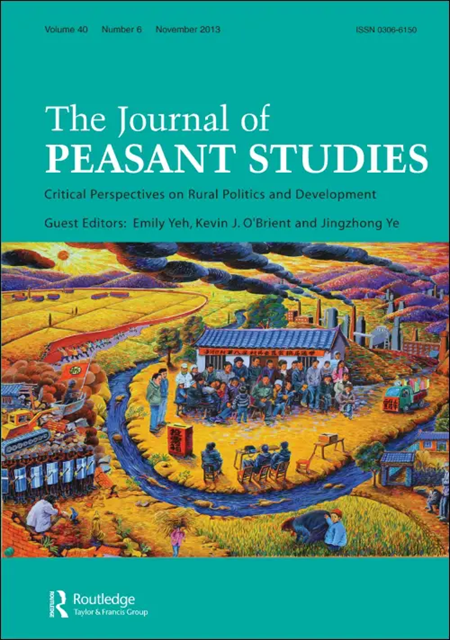工业渔业的产权问题
IF 4.8
1区 社会学
Q1 ANTHROPOLOGY
引用次数: 73
摘要
人们普遍认为渔业系统在经济和生态方面都“处于危机之中”,鉴于其对粮食安全、国际贸易和就业的全球重要性,这是一个相当令人担忧的问题。对这场危机最常见的解释是,它是由软弱和不自由的财产制度造成的。因此,纠正危机涉及建立私有产权,这将恢复渔业公司的盈利和生产功能与鱼类种群之间的平衡,以便使“租金”最大化。在这种方法中,沿海国家被视为渔业危机的被动、软弱、失败和/或腐败的观察者和促进者,除非它们建立私有财产关系。本文采用历史唯物主义的视角,提供了另一种分析方法,重新审视关于工业渔业中财产问题及其与地租关系的长期争论。它将沿海国家确定为现代土地财产,使探索剩余价值的存在和斗争成为可能,并提请注意国家的作用和生产环境条件在理解渔业政治生态条件中的重要性。就像在陆地上一样,海上的财产是社会斗争的场所,而且在资本主义制度下将永远如此,无论哪个法律利益集团拥有产权。本文章由计算机程序翻译,如有差异,请以英文原文为准。
The problem of property in industrial fisheries
Fisheries systems are widely considered to be ‘in crisis’ in both economic and ecological terms, a considerable concern given their global significance to food security, international trade and employment. The most common explanation for the crisis suggests that it is caused by weak and illiberal property regimes. It follows that correcting the crisis involves the creation of private property rights that will restore equilibrium between the profitable, productive function of fishing firms and fish stocks in order to maximize ‘rent’. In this approach, coastal states are seen as passive, weak, failed and/or corrupted observers and facilitators of the fisheries crisis, unless they institute private property relations. This paper offers an alternative analysis by using the perspective of historical materialism to re-examine longstanding debates over the problem of property and its relation to ground-rent in industrial fisheries. It identifies coastal states as modern landed property, enabling an exploration of the existence of and struggles over surplus value, and drawing attention to the role of the state and the significance of the environmental conditions of production in understanding political-ecological conditions in fisheries. As on land, property in the sea is a site of social struggle and will always remain so under capitalism, no matter which juridical interest holds the property rights.
求助全文
通过发布文献求助,成功后即可免费获取论文全文。
去求助
来源期刊

Journal of Peasant Studies
Multiple-
CiteScore
10.50
自引率
17.60%
发文量
99
期刊介绍:
A leading journal in the field of rural politics and development, The Journal of Peasant Studies (JPS) provokes and promotes critical thinking about social structures, institutions, actors and processes of change in and in relation to the rural world. It fosters inquiry into how agrarian power relations between classes and other social groups are created, understood, contested and transformed. JPS pays special attention to questions of ‘agency’ of marginalized groups in agrarian societies, particularly their autonomy and capacity to interpret – and change – their conditions.
 求助内容:
求助内容: 应助结果提醒方式:
应助结果提醒方式:


